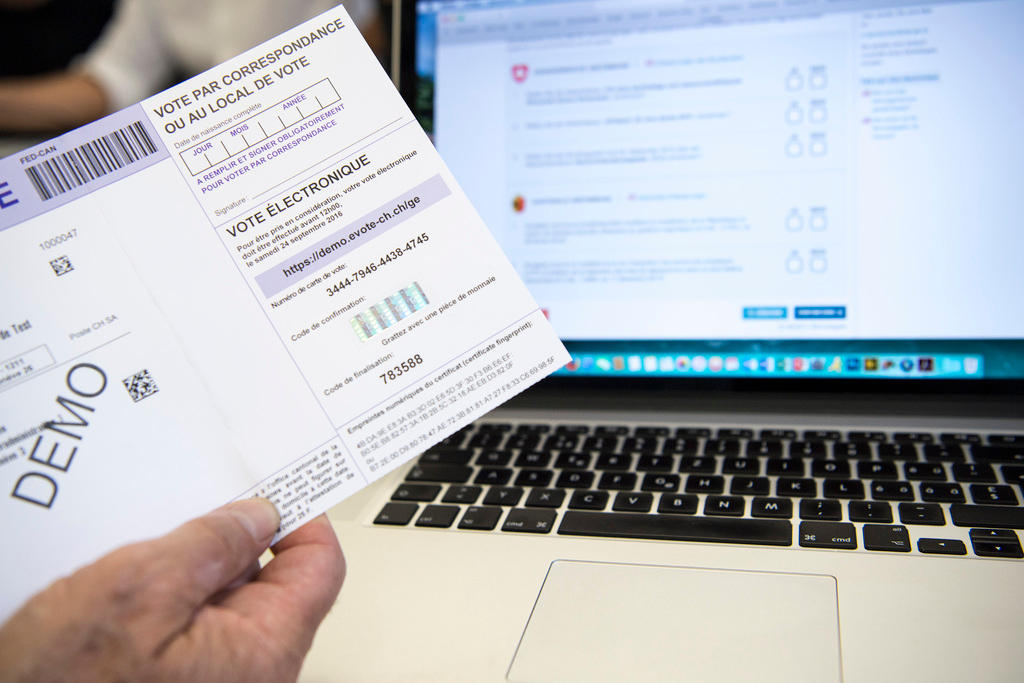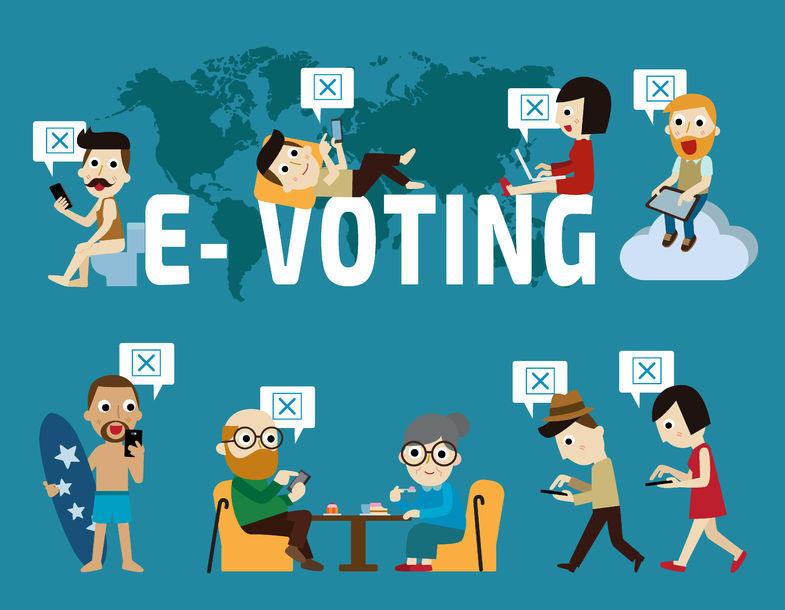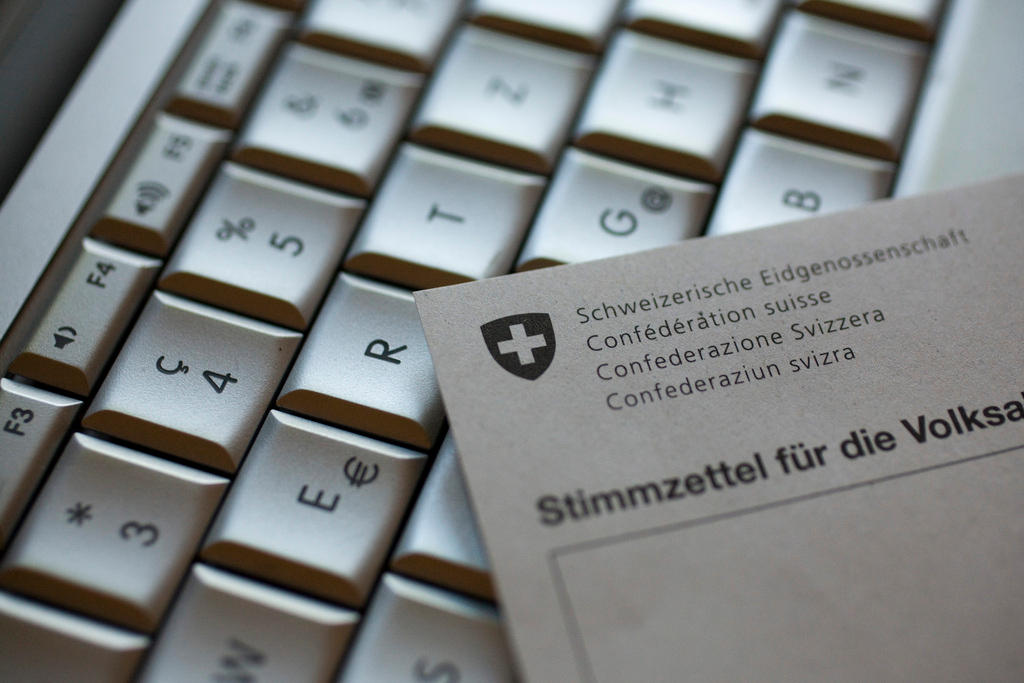How risky are flawed e-voting systems for democracy?

A leading data protection expert has warned of future security breaches if the government’s plan to introduce e-voting at a nationwide level goes ahead.
Bruno Baeriswyl, data protection commissioner in canton Zurich, urged the authorities to give up plans, announced last April, for online voting across Switzerland.
Speaking on the occasion of this year’s European Data Privacy Day at the end of January, BaeriswylExternal link said that current technology could not guarantee that ballots remain secret in votes and elections.
He and other cantonal data protection commissioners argued that digitalisation could undermine democratic principles even while online systems help to simplify procedures.
“The current systems for e-voting override the secret ballot in votes and elections. But it is imperative that all transactions must always be verifiable in a secure system. As a result, either we have ballot secrecy or we don’t have a secure method,” Baeriswyl said.
“And this is highly risky for our democracy.”
Established methods only?
But the Federal Chancellery, in charge of e-voting at the national level, says that the secret ballot and tight security can not only be ensured through established democratic methods.
Following more than ten years of trials at a cantonal level, the time is right and the technological standards fulfil democratic criteria, officials say.
“The principle of the secret vote is enshrined in the constitution and this applies also to e-voting, of course. The government will only allow the use of a system which can guarantee ballot secrecy,” says Barbara Perriard, head of the unit at the Federal Chancellery dealing with political rightsExternal link.
She agrees that the secret vote is a fundamental prerequisite for citizens to exercise their political rights, adding that the Federal Chancellery has a duty to offer e-voting as an option to meet a public demand.
Caution
A survey published by the Centre for Democracy Studies in 2016 found that an overwhelming majority of respondents is in favour remote online voting, but many are wary of possible technical flaws.
Bryan FordExternal link, associate professor at the Lausanne-based Federal Institute of Technology, points out that the Swiss technology standards are high, and the country is even at the forefront in some areas of IT security.
“Yet there is no absolute security,” the data protection expert says. “It is indeed a big challenge to ensure data protection in e-voting,” he cautions.
The computers of individual citizens are a major concern as the e-voting systems in use can’t isolate private computers from the entire user network. A computer that has been infected with malware could infringe the secret ballot.
However, security standards of the Swiss system are excellent when it comes to protecting the vote once it has been fed into the computer and is being sent online to the authorities.
“Any tampering with votes cast online doesn’t go unnoticed, even if a computer is infected,” says Ford.
Other risks
Countering warnings of e-vote security risks, experts say that the classic method of voting by postal mail also has its disadvantages, notably for Swiss citizens living outside the country.
The letters with the ballot papers are sometimes delivered too late to the homes of registered expats across the world, and therefore the votes can’t be sent back to Switzerland in time.
Another example, albeit not in Switzerland, was the 2016 run-off presidential elections in neighbouring Austria which had to be postponed because of damaged ballot documents delivered to voters.
Swiss e-vote history
Defying criticism of e-vote security risks, the Swiss government last year announced plans to expand e-voting across the country following trials in various cantons since 2004.
Federal Chancellor Walter Thurnherr said the goal is to have at least two-thirds of Switzerland’s 26 cantons with e-voting in place by 2019.
The current law places a maximum 10% limit of electronic votes for referendums and 30% for constitutional amendments.
The Organisation of the Swiss Abroad (OSA) has more ambitious plans. It wants all registered Swiss expats to be able to use the e-vote option by October 2019.

In compliance with the JTI standards
More: SWI swissinfo.ch certified by the Journalism Trust Initiative















You can find an overview of ongoing debates with our journalists here . Please join us!
If you want to start a conversation about a topic raised in this article or want to report factual errors, email us at english@swissinfo.ch.